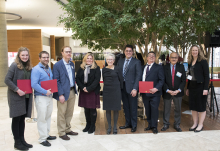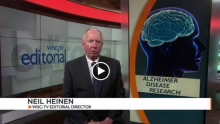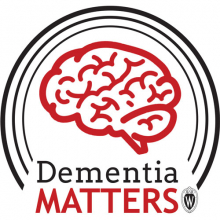
The Wisconsin Alzheimer’s Disease Research Center hosted more than 160 attendees at its 2019 Alzheimer’s Disease & Related Disorders Research Day, which took place March 1 at the Discovery Building on the UW-Madison campus. More than 40 students, trainees, postdocs, fellows, and junior faculty members from across the UW-Madison campus submitted scientific abstracts to the poster session held in conjunction with the event. You can read all the submitted abstracts online in the Poster...











